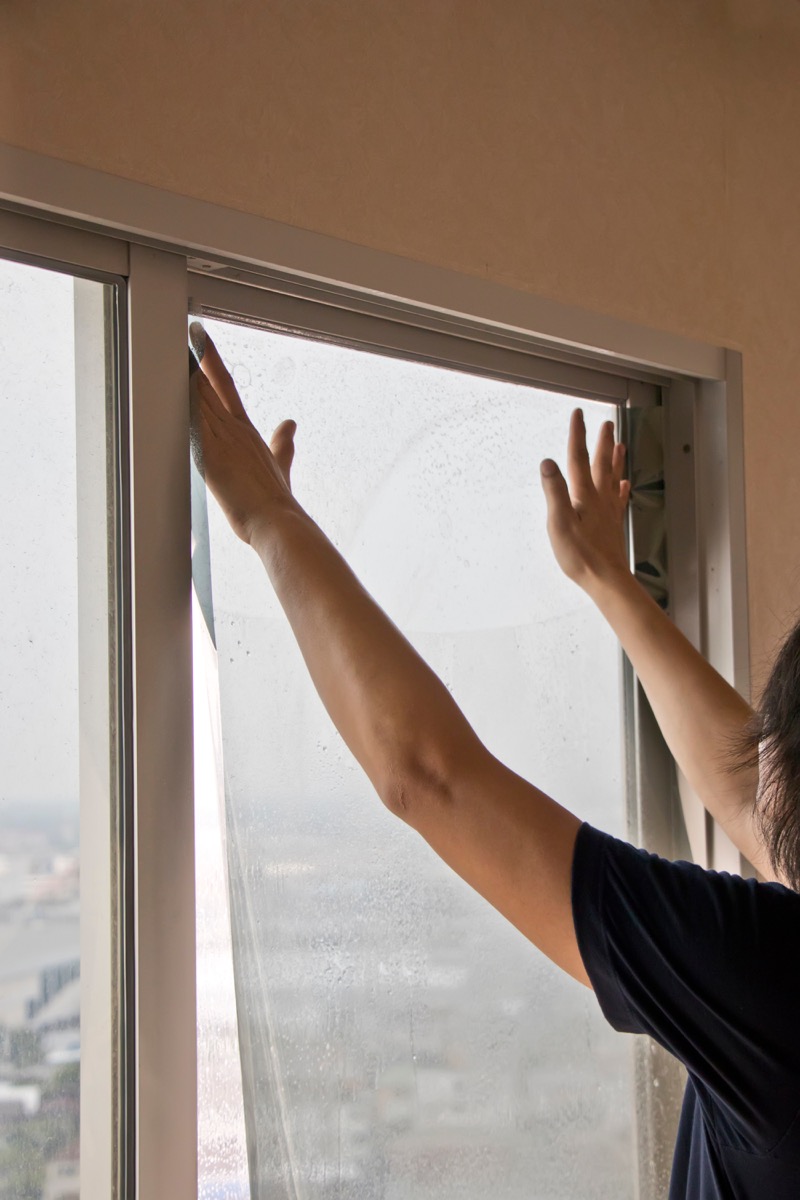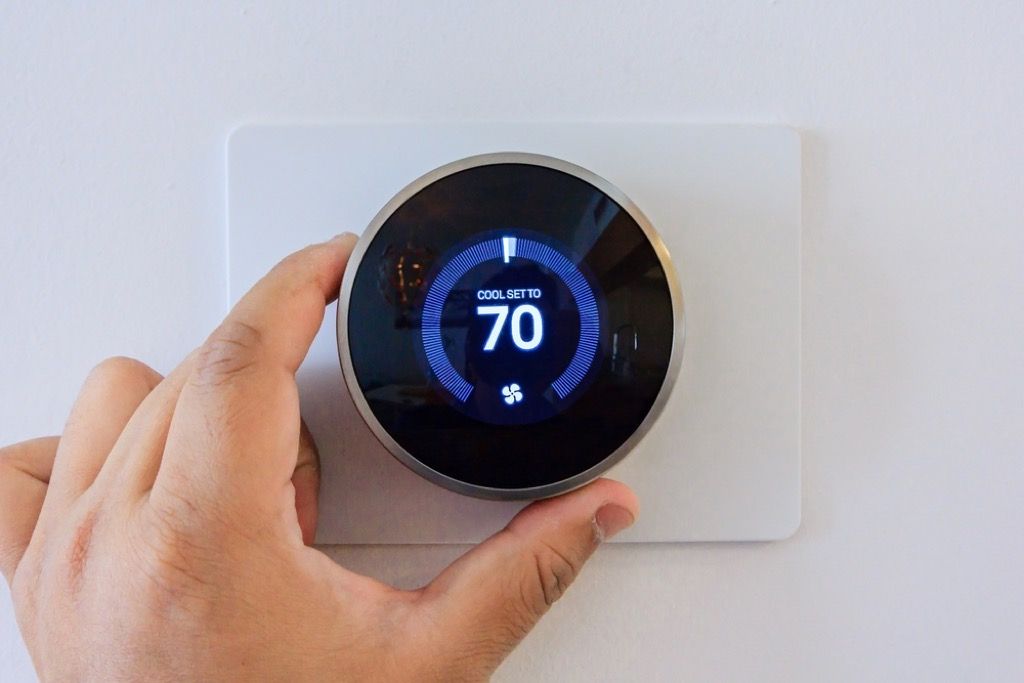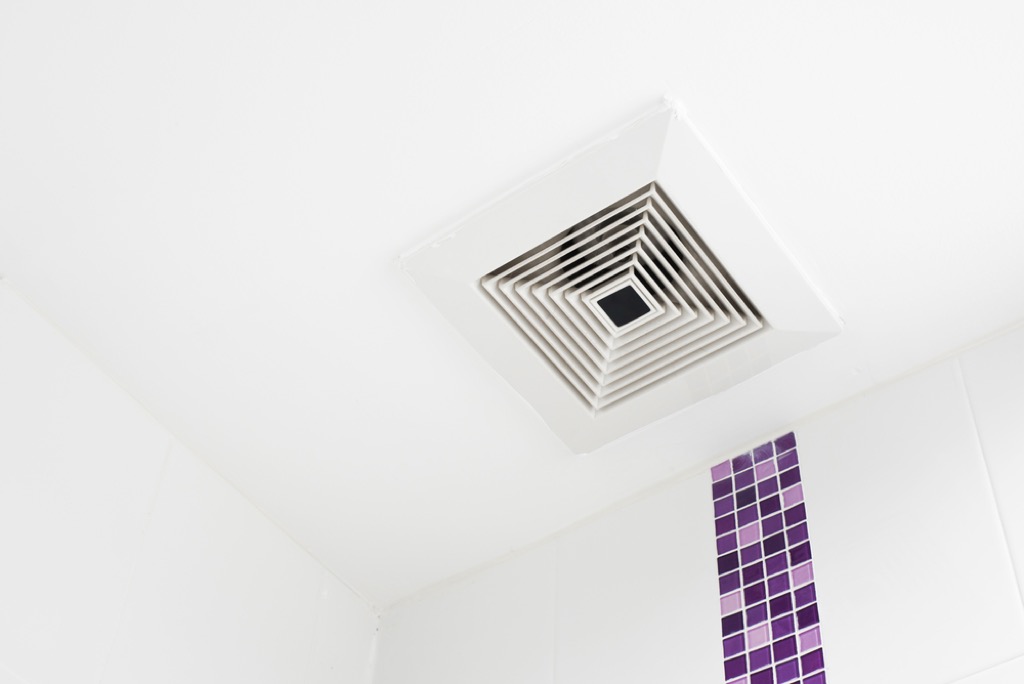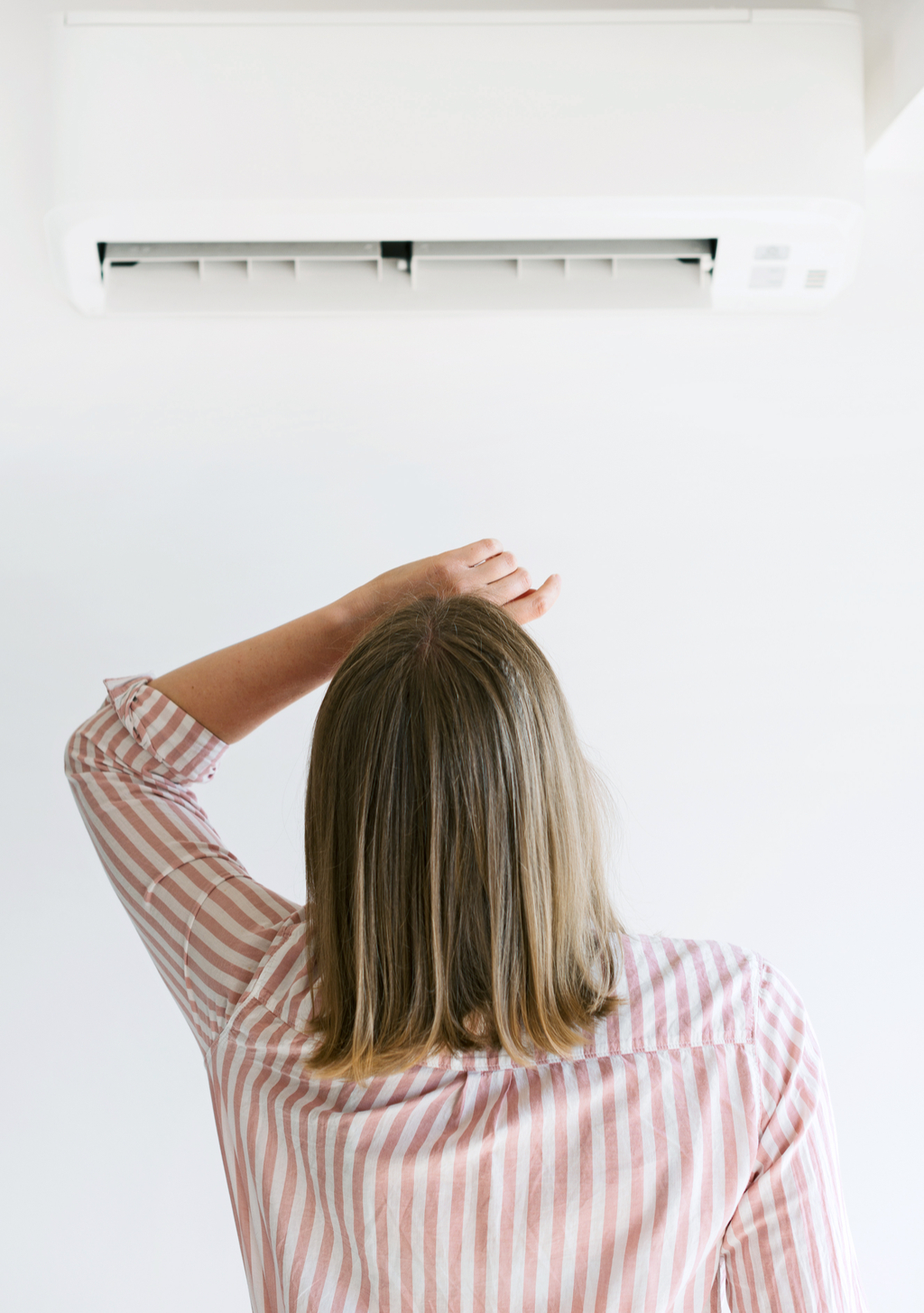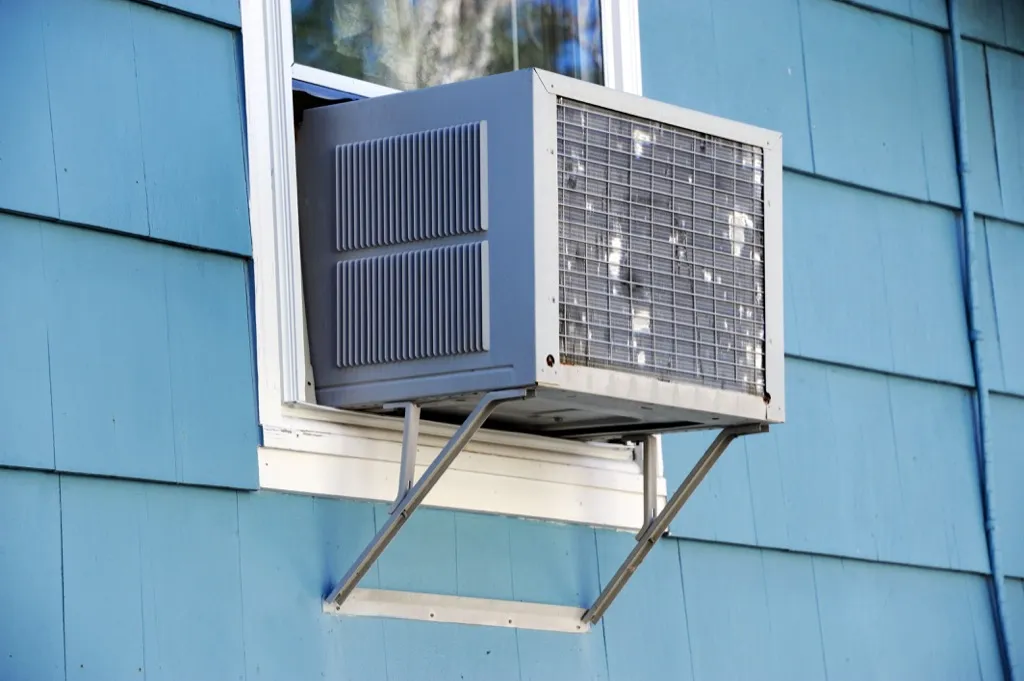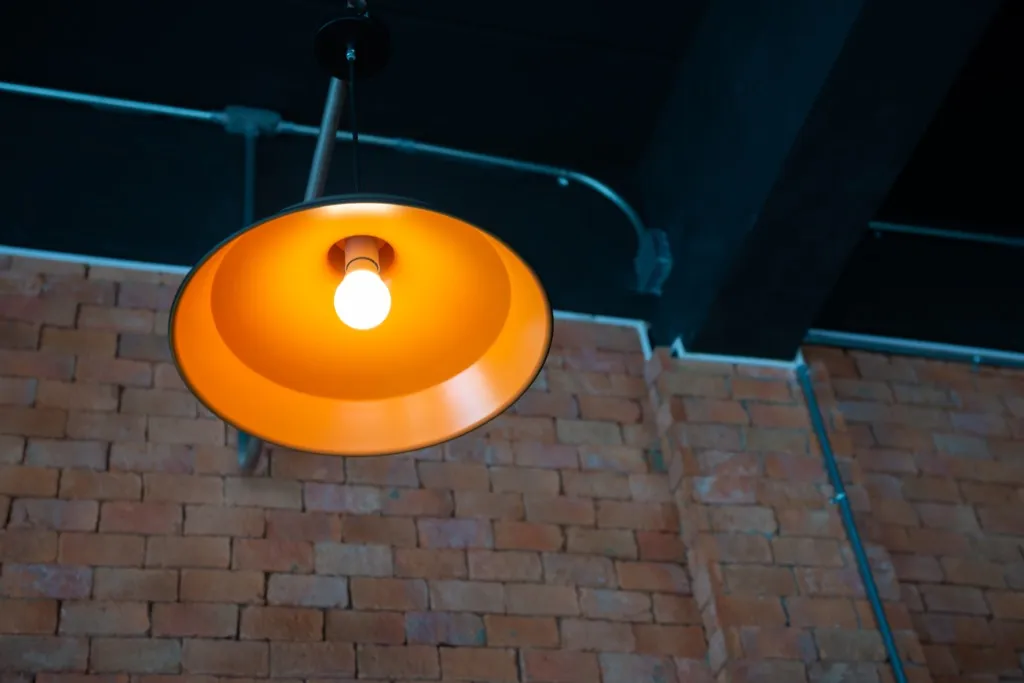One of the easiest ways to save money on your air conditioning costs? Simply swap out your current curtains for some blackout window coverings. “By using high-quality blackout blinds, the heat won’t reach the inside of your home and it will be much cooler,” says Brandi Andrews, founder and CEO of National Air Warehouse. While this will make your rooms darker, “Your AC won’t have to work so tirelessly to keep the room cool,” Andrews explains. If your house has little insulation in its walls, or if the insulation throughout your home is older, replacing it can be a major money-saver. “Use the most modern insulation available in order to lower cooling and heating costs,” says Andrews. “Today’s products, while more expensive to purchase and install, are designed to positively impact your monthly bills in the long-term.” You don’t need to replace your HVAC system to save money on your air conditioning bills—one simple addition to your existing system can save you big in the long-run. An evaporative cooler will work wonders for cooling your home, says energy expert Cisco DeVries, a former aide to the U.S. Secretary of Energy during the Clinton Administration and CEO of OhmConnect. “These are window units that remove heat from the environment by using water evaporation to create cool air,” explains DeVries. And if you want to know if your A/C could be putting you at risk, Experts Weigh In on Whether Air Conditioning Spreads Coronavirus. That ceiling fan in your kitchen may help you feel a bit cooler, but a whole-house fan can keep your entire space more comfortable all year long. “The fan is installed in your attic and creates negative pressure by drawing the hot air in your home into the attic. This negative pressure then draws in cooler air from outside, cooling down your home,” explains DeVries, who praises these systems for their low cost and easy installation. One simple way to keep your home cooler without racking up huge air conditioning bills? Create a “cool roof” by applying a “reflective layer to prevent the heat from coming into your home,” suggests DeVries. “They’re made up of a solar-reflective surface to keep the roof and house temperatures down,” he explains. And for more up-to-date information, sign up for our daily newsletter. Those old windows may vintage charm, but they’re letting your air conditioning leak out—and driving up your cooling costs. To help prevent this, DeVries suggests installing high-impact windows, which “filter out UV rays and prevent temperature increases when the sun shines through.” DeVries notes that these windows are also tightly sealed, making it harder for warm air to enter your space. Can’t afford entirely new windows? No problem! Installing reflective film instead will reflect and absorb anywhere from 40 to 60 percent of the heat that tries to enter your home without eliminating any light from your space, says Austin, Texas-based expert Michael Bluejay—who specializes in saving electricity. These reflective panels cost anywhere between $3 and $8 per square foot, but the cost is well worth the savings you’ll see on your A/C bill. That gap around your window or door may seem minor, but it can let a surprising amount of cold air out and allow a whole lot of warm air in. “Ensure your home is properly sealed on the windows and doors,” suggests Darcy Lee, an indoor comfort specialist at American Standard Heating & Air Conditioning. This can be done using caulking, weather stripping, or through replacing or re-fitting doors and windows to get a tighter seal. And for more big improvements that won’t break the bank, check out these 27 Amazing Home Upgrades for Every Budget. Your attic should already have a radiant barrier like the one pictured here. However, if yours is missing this essential component, then it’s high time that you get it installed. Why? According to Bluejay, a radiant barrier arms your home against heating and cooling leakage. By installing this layer across the underside of your roof, you can make sure that no cool air is escaping through the cracks, thus reducing your energy use by eight to 12 percent, according to the Florida Solar Energy Center. And for more smart home improvements, check out these 50 Clever Ways to Instantly Add Value to Your Home. Your home is filled with electronics that generate an exorbitant amount of heat. Therefore, to cut down on your A/C costs, Air Conditioning, Heating & Refrigeration News suggests periodically turning off your electronics. Similarly, turning off the lights in your home when you aren’t using them can save on energy costs. According to Indiana heating and cooling company Homesense, keeping your HVAC fan on “auto” rather than regulating the fan speed yourself can actually save you money on your A/C bill. Why? When it’s set to auto, your fan is programmed to run at the lowest speed and for the least amount of time possible. Plus, Homesense promises that keeping your HVAC fan on “auto” will also make your furnace filter last longer, as there will be no strain on it from constant use. Before you install your next thermostat, ensure that you’re doing so in the best possible place: far away from any spaces that are filled with warm sunlight. According to CNET, thermostats located near a particularly sunny window kick into action far more often than they should, thus raising the A/C bill unnecessarily. You should similarly steer clear of sticking your thermostat next to anything else that generates heat, like televisions, lamps, and other appliances. As the Natural Resource Defense Council (NRDC) explains, there’s no need to keep your home excessively cool while you’re gone. Simply turning up the temperature by a few degrees when you’re going out will maintain the cool environment of your home while saving you money on your next A/C bill. Better yet, you could save yourself time and money by swapping out your old-fashioned thermostat for a programmable one from a company like Ecobee, Lyric, Nest, or Lux. With these high-tech devices, you can actually program the thermostat to raise the temperature in your home while you’re gone. It’s as easy as that! Do your wallet a favor this summer by soaking in the tub only after the sun has set. When the outside temperature is particularly scorching, doing activities that generate a lot of heat—like cooking, washing and drying clothes, and showering—only make your home hotter. By simply avoiding these activities during the day, you’ll save money on electricity and prevent your air conditioning system from having to work overtime, according to the National Education Association. And for more cool advice, check out 40 Effective Tips for Sleeping Better on Sweltering Summer Nights. To keep your bathroom as cool as possible during the summer months, Metro Heating & Cooling in the Minneapolis, Minnesota area suggests running your exhaust fans whenever you take a shower. These fans are the perfect way to cycle the hot air and humidity out of the bathroom, as they work to continually supply a flow of cooler air without forcing you to crank up your A/C. To keep your home cool without racking up huge air conditioning bills, electrical engineering consultant Olin Lathrop suggests putting a fan in a window and pointing it outwards—with the face of the fan against the window—in order to blow hot air out of the room. If you employ this practice in every room, you can expel the hot air from your house, thus keeping it cooler. According to the NRDC, the use of just one ceiling fan can make a room feel up to 10 degrees cooler while only using 10 percent of the energy of a central air conditioner. To make the most of your ceiling fans, check to make sure that they are moving counterclockwise so that they are pulling up the cool air from the ground and blowing it back on to you rather than simply circulating warm air. And, just as you would with an air conditioner, make sure that you’re turning off the ceiling fan after leaving the room to conserve energy costs. To ensure that you’re adequately cooling every room in your home while simultaneously saving as much as you can on A/C costs, home appliance company Sylvane suggests using different cooling devices depending on each room’s square footage and energy use. Choose less intensive window or through-wall A/C units in smaller rooms, while furnishing bigger areas (like the living room and the kitchen) with more powerful ductless mini-split systems or portable air conditioners that rest on the ground.ae0fcc31ae342fd3a1346ebb1f342fcb You can save quite a bit of money on your A/C bill by simply taking the time to clean out your air conditioning units. According to the Department of Energy, clearing a clogged A/C filter can save anywhere from five to fifteen percent of your energy use. However, some experts warn that cleaning your filters during the pandemic may kick up coronavirus particles. If your A/C unit is more than 10 years old, it might benefit your bank account in the long run to just get a new, more efficient one. According to Bluejay, an A/C won’t run as efficiently if it’s being blocked in some way. Therefore, when you remove unwanted debris or tall grass that could be obstructing the flow of air surrounding your unit, you are ensuring that the performance of your A/C isn’t compromised and therefore costing you more. While normal lights give off 10 percent light and 90 percent heat, compact fluorescent bulbs and LED bulbs do the opposite, giving off about 90 percent light and 10 percent heat. Installing these bright and brilliant bulbs around your house could be the key to saving money and helping the environment. Win-win! During the balmy summer months, the nighttime always brings cooler and more manageable temperatures. So, instead of relying on your A/C at night, take advantage of the lower temperatures by opening the windows and allowing nature to cool your space. This cross ventilation will help circulate the air inside of your home without costing you anything. And for more information to keep you safe, check out The 10 Newest Coronavirus Hotspots You Need to Know About.
